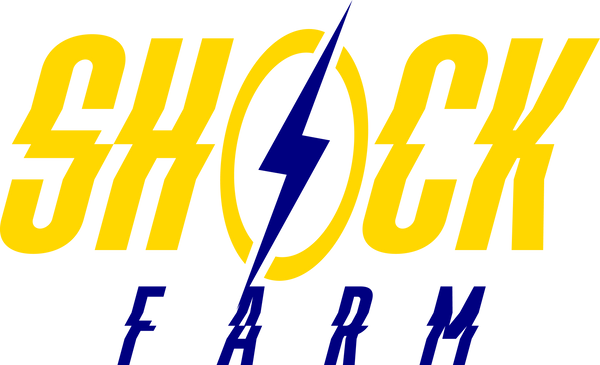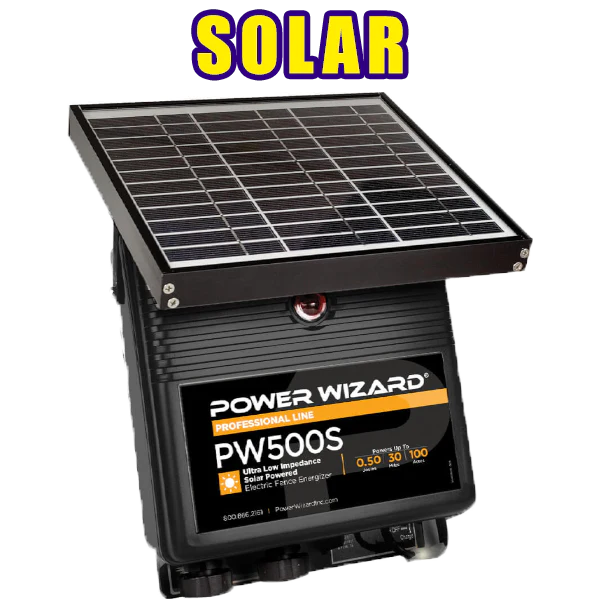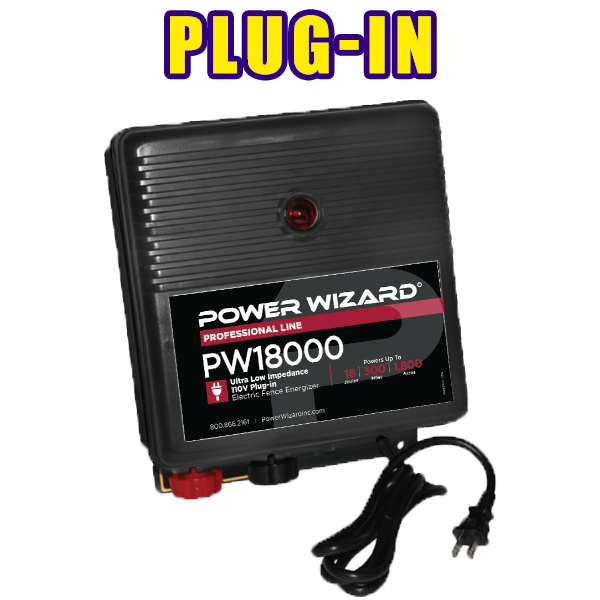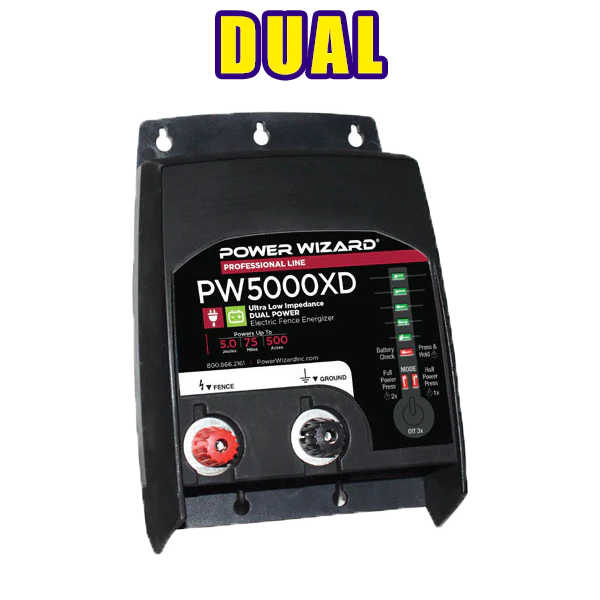Choosing the Right Fence Charger Size for Your Livestock: Understanding Joules and Volts
Share
If you own livestock, one of the most important things you need to consider is the type of fence charger you use to keep your animals safely contained. But with so many options available, it can be challenging to know which one to choose. In this article, we will explain the size of fence charger needed for horses, cows, pigs, sheep, and goats, and provide a joule and voltage scale for each animal.
Understanding Joules and Volts
Before we dive into the specific needs of each type of livestock, it's essential to understand the basics of fence chargers. Fence chargers work by providing an electric shock to any animal that touches the fence. The strength of the shock is measured in joules and volts.
Joules represent the energy output of the fence charger. In simple terms, the more joules a fence charger has, the more energy it can deliver, and the more powerful the shock will be. Volts, on the other hand, measure the strength of the electrical current that runs through the fence wire. The higher the voltage, the easier it is for the current to penetrate an animal's thick hide or fur.
Size of Fence Charger for Horses
Horses are powerful animals, and they can be easily spooked. Therefore, it's crucial to use a fence charger that is strong enough to keep them safely contained but not too strong that it causes harm. For horses, you should use a fence charger that has at least 0.5 joules of energy and a voltage of 2,000-3,000 volts.
Size of Fence Charger for Cows
Cows are generally less excitable than horses, but they are still strong animals that require a powerful fence charger. For cows, you should use a fence charger that has at least 0.5-1 joules of energy and a voltage of 2,000-3,000 volts.
Size of Fence Charger for Pigs
Pigs are intelligent animals that can quickly learn how to escape from a fence. Therefore, it's important to use a fence charger that is strong enough to deter them. For pigs, you should use a fence charger that has at least 0.5-1 joules of energy and a voltage of 3,000-4,000 volts.
Size of Fence Charger for Sheep
Sheep are much smaller and less powerful than horses, cows, and pigs, so they require a less powerful fence charger. For sheep, you should use a fence charger that has at least 0.25-0.5 joules of energy and a voltage of 2,000-3,000 volts.
Size of Fence Charger for Goats
Goats are intelligent and agile animals that can easily jump over or crawl under a fence. Therefore, it's important to use a fence charger that is strong enough to deter them. For goats, you should use a fence charger that has at least 0.5-1 joules of energy and a voltage of 3,000-4,000 volts.
Conclusion
Choosing the right size of fence charger for your livestock is crucial for keeping them safely contained. It's essential to consider the specific needs of each type of animal and select a fence charger that provides enough energy and voltage to deter them without causing harm. By using the joule and voltage scales provided in this article, you can make an informed decision and ensure the safety and well-being of your animals.
| Animal | Recommended Joule Range | Recommended Voltage Range | Suggested Fence Charger |
|---|---|---|---|
| Horses | 0.5-1 joules | 2000-3000 volts | Power Wizard 1500 |
| Cows | 0.5-1 joules | 2000-3000 volts | Power Wizard 3000 |
| Pigs | 0.5-1 joules | 3000-4000 volts | Power Wizard 1000 |
| Sheep | 0.25-0.5 joules | 2000-3000 volts | Power Wizard 500 Solar |
| Goats | 0.5-1 joules | 3000-4000 volts | Gallagher S100 |
Note that these are just general recommendations, and the actual size of the fence charger you need will depend more on factors such as the size and strength of your animals, the type of fencing material you're using, and MOST IMPORTANTLY the size of your pasture or enclosure.




3 comments
Effective pasture management is crucial for the well-being of horses. Prioritizing rotational grazing can help maintain healthy forage and minimize overgrazing. Proper fencing ensures the safety and containment of the animals within the designated area. Regular maintenance and assessment of the pasture are essential for optimal horse health. Providing adequate shelter and access to clean water sources further contributes to their overall comfort and well-being.
I have a 30ft by 60 foot garden i want to keep deer and more importantly racoons out. What size fencer should i get and one that stayes on at night..
How many joules is recommended for a large bull?